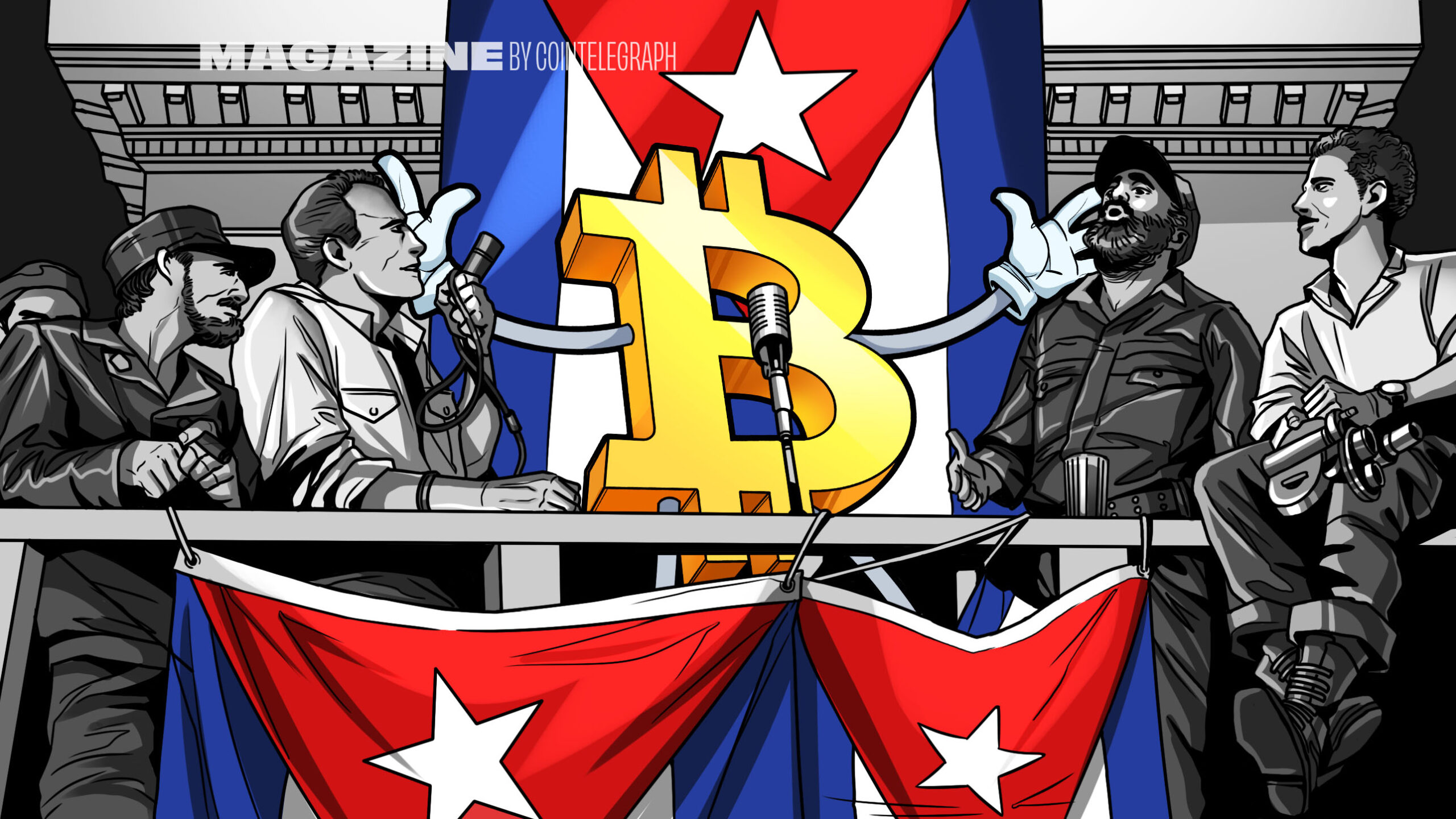In Cuba’s capital, Havana, a Bitcoin community has emerged from an economically antagonistic environment.“Satoshi didn’t create Bitcoin
In Cuba’s capital, Havana, a Bitcoin community has emerged from an economically antagonistic environment.
“Satoshi didn’t create Bitcoin for Cubans, but it really comes in handy for us,” Forte, co-founder of the aptly named local Bitcoin organization Cuba Bitcoin, tells Magazine.
Cubans are turning to Bitcoin because their money is increasingly worthless. Zimbabwe, Venezuela and Lebanon often compete for media coverage about runaway inflation levels, but the Cuban peso is not far behind.
The Cuban peso has devalued so much over the last few years that carrying bags of cash is increasingly common among the rich and the poor.
In practice, even if someone bought Bitcoin at the top of the 2021 bull run at $69,000, their money is worth much less in Cuban pesos. Whereas Bitcoin dropped 80% to its bear market low, it has since recovered 100%, and the peso has devalued by 90%.
The realization that someone should swap local currency for the Bitcoin top, knowing that it will crash and they’ll still retain more purchasing power, is one of the many financial wake-up calls received while working on Cointelegraph’s new documentary, The Truth Behind Cuba’s Bitcoin Revolution.
In 2021, I came across the article “Inside Cuba’s Bitcoin Revolution” by Human Rights Foundation chief strategy officer Alex Gladstein, in which he explains how and why Cubans were utilizing Bitcoin’s stateless and low-fee properties to save money and escape financial oppression.
In line with the Bitcoin mantra of Don’t trust, Verify, I went to see with my own eyes what Gladstein described.
Camera in hand with my trusty travel partner Paco de la India by my side, I network my way into the Cuba Bitcoin community, which now counts thousands of enthusiasts and advocates.
La Cultura Cubana
Following one of the largest financial conferences in the world, Bitcoin Miami, in arguably the world’s most capitalist arena, the United States of America, I hop across the Caribbean to Cuba, one of the few extant socialist states. The contrast hits me harder than the Cuban tropical heat.
From the moment I landed at Havana Jose Marti International Airport, I noticed some funny quirks: doors open manually (forget automatic sensors), check-in and immigration are done on pen and paper, and the taxis are 1950s Chevrolets.

It’s common to describe visiting Cuba as a time warp. It’s not hyperbole; Cuba cannot access world markets, financial institutions or trade. The United States has subjected Cuba to a trade embargo — the longest in modern history — since the island nation nationalized U.S. oil refineries in 1960.
As a result, Cuban industry, economic output and commerce lag far behind the modern world.
The embargo, coupled with more than half a century of communism, has resulted in a highly educated, extraordinarily literate but desperately poor and hungry population, many of whom possess a heartbreaking desire to leave the island, or in Spanish, to find a “salida” — an exit.
Why stay in a country where a taxi driver earns more than an atomic engineer — and the emaciated engineer struggles to feed their family?
Adopting Bitcoin
In such an environment, it’s a wonder why Cubas don’t flock to Bitcoin as money that exists outside of state control. However, many Cubans are learning about and slowly turning to Bitcoin.
Catrya, one of the main characters in Cointelegraph’s new documentary and one of the founders of Cuba Bitcoin, explains that there could be around 5,000 Bitcoiners in Cuba, and if you include crypto enthusiasts generally, the number is higher still.
Cubans do not have easy on-ramps into crypto. Firstly, those with internet connections cannot sign up for Binance, Coinbase or Gemini due to their nationality. For Cuban Americans on the island, Cuba’s government restricts access to American websites. Cubans buy Bitcoin peer-to-peer through Telegram or WhatsApp groups and at in-person meetups.
What amazes me is the tiny amounts of money Cubans put aside to save money or “stack sats.” Saving 1,000 satoshis (less than $1 a week) is meaningful to a Cuban on $40 monthly. The Cuban peso may not be here in 10 years, but Bitcoin certainly will be.
The peer-to-peer process is straightforward, but it’s not beginner-friendly, and these hurdles can hamper adoption — although they do have a silver lining, as Catrya explains:
“Since we’re denied [access to exchanges] by default for being Cuban, we can never do KYC [Know Your Customer], so that’s a good thing for us, at least in terms of privacy.”
Buying Bitcoin peer-to-peer and storing Bitcoin by taking ownership of the private keys is safer. Customers who trusted custodians such as FTX, BlockFi, Celsius and Vauld with their crypto were wiped out. Cubans don’t have that…
cointelegraph.com

COMMENTS